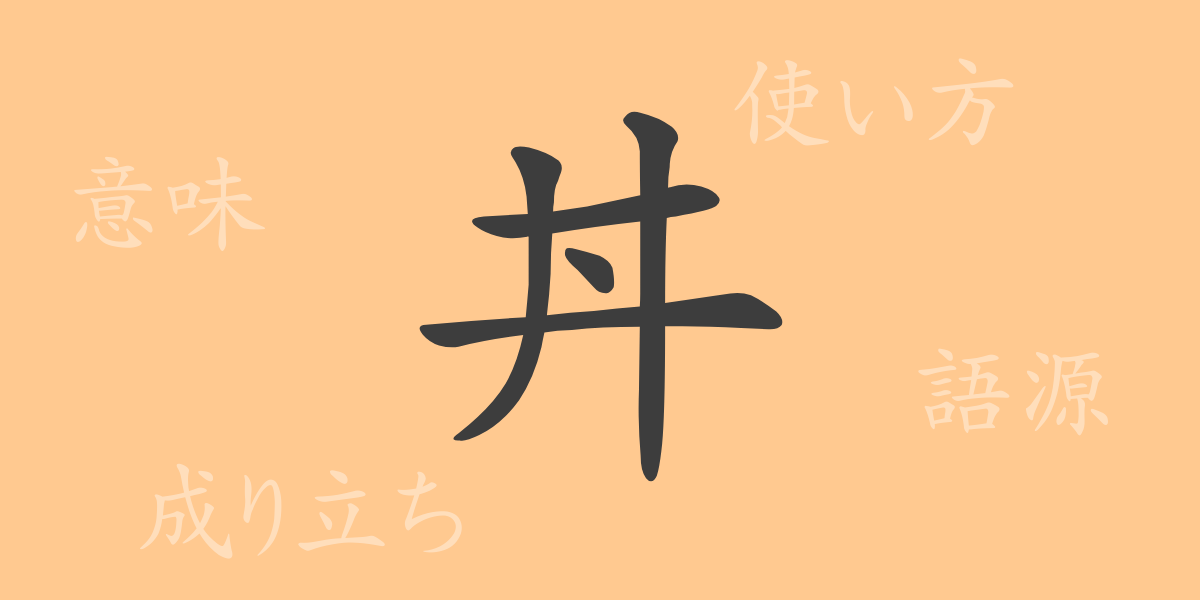One of the icons indispensable to Japanese food culture is the ‘丼 (どんぶり)’ bowl. More than just a piece of tableware, this term deeply ingrained in our dietary life is familiar to many Japanese. Yet, the origins, meanings, and uses of the bowl carry a history and culture that are surprisingly little known. This article delves into the entirety of the Kanji ‘丼’, unraveling its allure from its origins to modern-day applications.
Origins of ‘丼 (どんぶり)’
The origin of the character ‘丼’ traces back to ancient China, originally linked to the word ‘鉢’ which denoted vessels for holding food. Originally signifying containers, when introduced to Japan, it became popularized as ‘どんぶり’ (donburi), referring not only to the vessel but also to the dishes served within it. Donburi dishes, which consist of rice with various toppings, have become staple menus enhancing Japanese dining tables.
Meaning and Usage of ‘丼 (どんぶり)’
In contemporary Japanese, ‘丼’ has two primary meanings. One pertains to the ‘丼’ as tableware—a deep, rounded ceramic or porcelain bowl. The other usage refers to dishes served in these bowls, such as ‘牛丼’ (beef bowl), ‘天丼’ (tempura bowl), and ‘海鮮丼’ (seafood bowl). In both senses, ‘丼’ plays an integral part in the daily lives of the Japanese.
Readings, Stroke Count, and Radical of ‘丼 (どんぶり)’
Though relatively simple in structure, ‘丼’ has specific readings and features in Japanese.
- Readings: On’yomi ‘トン’, Kun’yomi ‘どんぶり’
- Stroke Count: ‘丼’ consists of 5 strokes.
- Radical: The radical of ‘丼’ is ‘丶’ (てん).
Phrases, Idioms, and Proverbs Involving ‘丼 (どんぶり)’
While not common, there are a few idioms and proverbs involving ‘丼’. For example, ‘一丼飯’ (いちどんはん) refers to a single meal’s worth of food, metaphorically used to mean a small recompense. ‘丼勘定’ (どんぶりかんじょう) is another phrase, meaning to lump sums together carelessly, suggesting rough or unfair treatment.
Conclusion on ‘丼 (どんぶり)’
The role of ‘丼’ in Japanese food culture goes beyond merely denoting a type of dishware or cuisine; it reflects the lifestyle and values of the Japanese people. The simple yet profound implications of ‘丼’ are intimately connected to the unique Japanese sensibilities towards food. Through this exploration, we have glimpsed the rich culture and history encapsulated within the single character ‘丼’. Next time you enjoy a varied ‘丼物’, consider the stories encapsulated within each bowl.

























